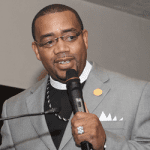
We go to an Anglican church now. Every Sunday, worship is infused with the words of the Bible, with singing, with teaching and listening.
And lately, it’s become apparent to me that I’ve really been avoiding the Bible, this book that stood at the front of everything my entire childhood.
In college and in the years following, the images given to me of God, of Jesus, of the Bible, crumbled along with the patriarchal lens through which I saw them.
And so, I’ve avoided the words of the Bible.
I’ve been confused by them.
Often, I no longer trust them, because they leave the aftertaste of patriarchy.
They leave the aftertaste of a colonized faith, one that I grew up in and am now slowly trying to disconnect from. I was the worship leader for the FCA. I was at every True Love Waits Rally, every retreat.
And while I deeply loved God, my faith had that constant sting of legalism, that constant checklist being kept in the back of my mind and in my heart, so much so that at the end of the day, if I hadn’t done my “quiet time,” I was sure God would give up on me, send down a punishment, bang his gavel and look gravely in my direction.
You see, God was an unfair judge. God was Zeus. God was kind, but could quickly become angry and leave or go on a destructive killing spree. He was the one who would send me to hell if I didn’t do the right things and save the right people.
God saw me, but wanted my voice to be quiet, my heart to be submissive and obedient.
While obedience can be a beautiful thing, this kind of obedience was caused out of fear, and the Bible was the place that kept things in check. It was the thing that, through various girls’ bible studies, taught me how to keep my body in line, to avoid my sexuality, to submit to the men in my life, to keep myself quiet and out of trouble. It was said in varying degrees of undertones, and Jesus’ voice was used as the guiding voice in the narrative.
About four years ago, I attended a church for the first time in my life that said anything about the possibility of the Bible being part reality, part metaphor. For the first time, I saw this book as a work of history, but more than that, I saw it as a work written by men, human men with limitations and egos and preferences. It was written with a particular cultural view, and to ignore that all these years couldn’t have caused more damage.
As a Potawatomi woman, I began decolonizing stories that had always been Americanized for the church in the United States. I saw, for example, the story of Jesus in the wilderness completely differently when I looked at it through an indigenous lens, thinking about the journey young men take on a vision quest to find their life’s calling. In a story that so often gave me a bad taste in my mouth, I saw that the wilderness was, indeed, dangerous, but essential, if not beautiful for the life and calling of Jesus.
I realized about a year ago that the Jesus of my childhood was mostly American. The Jesus of my childhood stood alongside the Pilgrims at the Thanksgiving table and ushered Columbus to the shore in 1492. That Jesus wanted me, but wanted my obedience more.
Now, as I continue to decolonize and deconstruct my own life and faith, I’ve had to create some distance with the language and tools that I held so dear in my teen years. As Richard Rohr puts it, I had a container, something to give shape to my life, and it made me who I am. I’m grateful for its work in me. But, as we grow into adulthood, we ask if that container still holds, or if it should be broken or re-shaped into something else.
And so, I’ve stepped out of that container, out of the southern Baptist tradition, and in so doing, have stepped out of the American Evangelical church.
But reclaiming the Bible, reclaiming the Jewish stories of the old testament and seeing these stories through a cultural lens that doesn’t include American culture, is going to take a lot of time and work. And the reality is, I’m not a biblical scholar to begin with.
But I’m willing to try. While I avoid phrases like “bible study,” or “quiet time,” I’m willing to reclaim the gospel words to include everyone and not the elite Christian few.
I’m willing to look at the words of Jesus that have been used to oppress so many peoples of the world, mine included, and know that Jesus never intended that his stories and parables would be used to incite violence and raise up empires.
Our President quoted scripture to share that the world mourns with those lost in the shooting in Las Vegas.
Pat Robertson quoted scripture again and again to say that we have become a godless nation because we’ve forsaken the American flag and the national anthem, because we do not respect authority properly.
I expect that the Bible will always be abused by the religious elite, by those who want to use its words to gather power. Even many in the pulpits do this at one time or another, and the difficult task as listeners is to remain grounded in the reality of who Christ is today and has always been. It is essential that we disconnect the Trinity from empire.
So I’m seeing it from the bottom, where the broken see it.
I’m seeing it from my ancestors’ point of view, who sought justice as those who suffered injustices.
I’m seeing it from other people who suffer, seeing that Jesus stands with those who suffer, not with the privileged.
I’m reaching out to Jewish friends so that I can see the old testament through the historical lens in which it was written.
I’m trying to listen with the knowledge that God is far bigger than who I imagined growing up, and is far bigger than who I can even fathom today.
And my slow and steady return to a book that has meant so much may take time, too. Because trauma is not easily gotten over. Colonization is not easily undone.
But it is always worth the effort, and the reward is a clearer picture of what is good, and what was good to begin with.
I return to the world outside, to nature, to the wind and the towering trees to remember that God created a benevolent world, and I return now and again to the Bible to remember that the stories of Jesus are meant to teach me something about who I am in this world, despite the ways in which it’s been abused in American Evangelicalism.
And so, I slowly return.
And with me comes words like these, by Mary Oliver, to remind me that what I return to is the God who has been there all along, welcoming me in everything that I am, ever was, and ever will be:
| You do not have to be good. |
| You do not have to walk on your knees |
| for a hundred miles through the desert repenting. |
| You only have to let the soft animal of your body |
| love what it loves. |
| Tell me about despair, yours, and I will tell you mine. |
| Meanwhile the world goes on. |
| Meanwhile the sun and the clear pebbles of the rain |
| are moving across the landscapes, |
| over the prairies and the deep trees, |
| the mountains and the rivers. |
| Meanwhile the wild geese, high in the clean blue air, |
| are heading home again. |
| Whoever you are, no matter how lonely, |
| the world offers itself to your imagination, |
| calls to you like the wild geese, harsh and exciting – |
| over and over announcing your place |
| in the family of things. |
Amen.
















